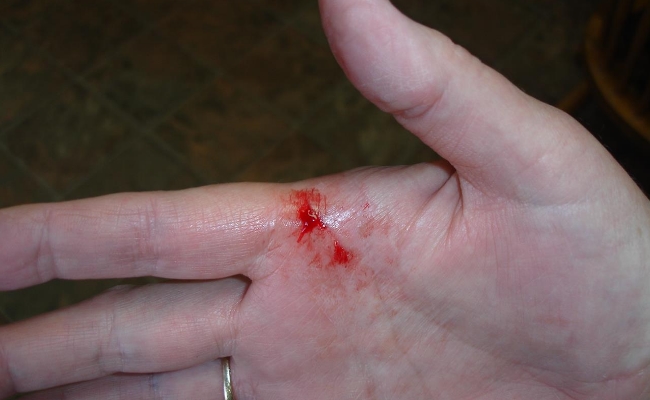SCIENCE ABOUT HONEY

Honey is one of the well known and health promoting nutritional supplement which is also used for treatment of some health problems as well for preparation of natural medicines. But in certain cases, excessive intake of honey can give rise to various side effects.
Honey is a sweet liquid produced by honey bees using nectar from flowers through a process of regurgitation and evaporation.
This MNT Knowledge Center article includes a brief history of honey in traditional medicine and explains some of its potential health benefits.
The possible health benefits of consuming honey have been documented in early Greek, Roman, Vedic, and Islamic texts and the healing qualities of honey were referred to by philosophers and scientists all the way back to ancient times, such as Aristotle (384 - 322 BC) and Aristoxenus (320 BC).
Honey has high levels of monosaccharides, fructose and glucose, containing about 70 to 80 percent sugar, which gives it its sweet taste - minerals and water make up the rest of its composition.
Honey also possesses antiseptic and antibacterial properties. In modern science, we have managed to find useful applications of honey in chronic wound management.
However, it should be noted that many of honey's health claims still require further rigorous scientific studies to confirm them.
The possible health benefits of honey
Honey has been consumed for thousands of years for its supposed health benefits.
Modern science is finding that many of the historical claims that honey can be used in medicine may indeed be true. In the Bible (Old Testament), King Solomon said, "My son, eat thou honey, for it is good", and there are a number of reasons why it may be good.
Proverbs 24:13
Eat honey, my son, for it is good; honey from the comb is sweet to your taste.
1) Acid reflux
Professor Mahantayya V Math, from MGM Medical College, Kamothe, Navi Mumbai, India, explained in the BMJ (British Medical Journal) that, as it is 125.9 more viscous than distilled water at 37 celsius (body temperature), honey may be helpful in preventing GERD (Gastroesophageal reflux).3
2) Infantile gastroenteritis
E. Haffejee and A. Moosa reported in the BMJ on a clinical study in which they used honey in oral rehydration solution in children and infants with gastroenteritis. Their aim was twofold:
Determine whether honey might affect the duration of acute diarrhea
Evaluate honey as a glucose substitute in oral rehydration
They found that honey shortens the duration of bacterial diarrhea in infants and young children.4 They added that honey does not prolong non-bacterial diarrhea duration, and "may safely be used as a substitute for glucose in oral rehydration solution containing electrolytes."
3) Healing wounds and burns
There have been some cases in which people have reported positive effects of using honey in treating wounds.
There have been some cases in which people have reported positive effects of using honey in treating wounds. Hurlburt, a borderline diabetic, with recurring cellulitis and staph infections tried taking antibiotics for months. However, they failed to alleviate the symptoms. Hulburt's physician, Jennifer Eddy of UW Health's Eau Claire Family Medicine Clinic, suggested that she should try topically applying honey. Soon after applying the honey, she began to feel better.
Hulburt said that she remembered thinking "holy mackerel-what a difference. It's a lot better than having to put oral antibiotics into your system."
A review published in The Cochrane Library indicated that honey may be able to help heal burns, the lead author of the study said that "topical honey is cheaper than other interventions, notably oral antibiotics, which are often used and may have other deleterious side effects."
However, it should be stressed that there is a lack of evidence to fully support this claim. In fact, a study published in The Lancet Infectious Diseases concluded that applying medical grade honey to wounds of patientshas no advantage over normal antibiotic among patients undergoing dialysis.
4) Honey for treating allergies
There is some research to suggest that honey may be useful in minimizing seasonal allergies. The Guardianreported that honey even 'beats cough medicine' at alleviating and reducing the frequency of cough.
One placebo-controlled study which included 36 people with ocular allergies, found that participants responded better to treatment with honey compared to placebo. However, a third of them reported that eating a tablespoon of honey every day was hard to tolerate due to its overly sweet taste.
5) Fighting infections
In 2010, scientists from the Academic Medical Center at the University of Amsterdam reported in FASEB Journal thathoney's ability to kill bacteria lies in a protein called defensin-1. 5
A study published in the journal Microbiology revealed that Manuka honey is effective at treating chronic wound infections and may even prevent them from developing in the first place.
Dr. Rowena Jenkins and colleagues, from the University of Wales Institute, reported that Manuka honey kills bacteria by destroying key bacterial proteins.
Some studies have revealed that a certain type of honey, called "Manuka honey," may even be effective for the treatment of MRSA infections.
Dr Jenkins concluded:
"Manuka and other honeys have been known to have wound healing and anti-bacterial properties for some time. But the way in which they act is still not known. If we can discover exactly how Manuka honey inhibits MRSA it could be used more frequently as a first-line treatment for infections with bacteria that are resistant to many currently available antibiotics."
Manuka honey may even help reverse bacterial resistance to antibiotics, according to research presented at the Society for General Microbiology's Spring Conference in Harrogate, UK.
A study published in the journal Pediatrics, which compared honey to placebo in helping children with cough during night time, found that honey was superior. The researchers concluded "Parents rated the honey products higher than the silan date extract for symptomatic relief of their children's nocturnal cough and sleep difficulty due to URI (upper respiratory infection). Honey may be a preferable treatment for cough and sleep difficulty associated with childhood URI."
Natural honey better at killing bacteria than artificial honey - Kendall Powell wrote in the journal Nature that "natural honey kills bacteria three times more effectively" than an artificial honey solution of the same thickness and sugar concentration.
Honey's other possible uses in medicine
New research is always finding new possible uses of honey in treating certain conditions and diseases. One study found that Manuka honey may prevent radiation-induced dermatitis in breast cancer patients.
Here Is The List of Main Side Effects Occurred Due To Excess Consumption of Honey:
Stomach Cramping and Constipation
The maximum limit for honey intake is ten tablespoon per day. If this limit exceeds, the consumer can suffer from diarrhea, stomach cramping, constipation and bloating.
Proverbs 25:16
If you find honey, eat just enough-- too much of it, and you will vomit.


Increased Level of Sugar in Blood
Honey is all sugar without any fiber content; so the consumer while eating honey gets nothing but sugar. This sugar is absorbed by blood rapidly and leads to an insulin spike. Sugar with fiber is not absorbed that much by the blood but as honey does not have any fiber, it directly increases the sugar level in blood.


Malfunctioning of Gastrointestinal Tract
Over consumption of honey on regular basis always results imparting negative effects on gastro-intestinal tract. Actually absorption of nutrients become a permanent problem this way and being slightly acidic, honey can lead to malfunctioning of gastrointestinal tract.


Allergy and Weight Gain
The main component of honey is fructose; thus eating honey so much can lead to unwanted weight gain, pancreatic cancer, acne, diabetes and allergies. Moreover, excess intake of honey can result in erode of tooth enamel. Due to extra sugar content in honey, the chances of obesity become higher. People having allergy to pollen, celery and other allergies related to bee activities should not use honey.


Promote Low Blood Pressure
Low blood pressure is an abnormal health condition which can occur in anyone. Moreover, many people are there to suffer this problem nowadays. Although, there are many causes to give rise to low blood pressure but honey is also an important reason for lowering the blood pressure.


Increasing Risk of Bleeding
When one is suffering from the condition of internal bleeding or external one, it should avoid consumption of honey.


Decrease in Teeth’s Health
This is also important describe here that excessive intake of honey leads towards decreased health of teeth. You can experience erode of tooth enamel and unattractive look of honey. Sometimes, honey can be the reason to formation of dental cavities as acid present in it attracts acidophilic bacteria.


So, you might have been happy to know all these side-effects of having excess consumption of honey. Well, you need nothing but to keep all these adverse effects on mind during the time you eat honey.


Comments
Post a Comment